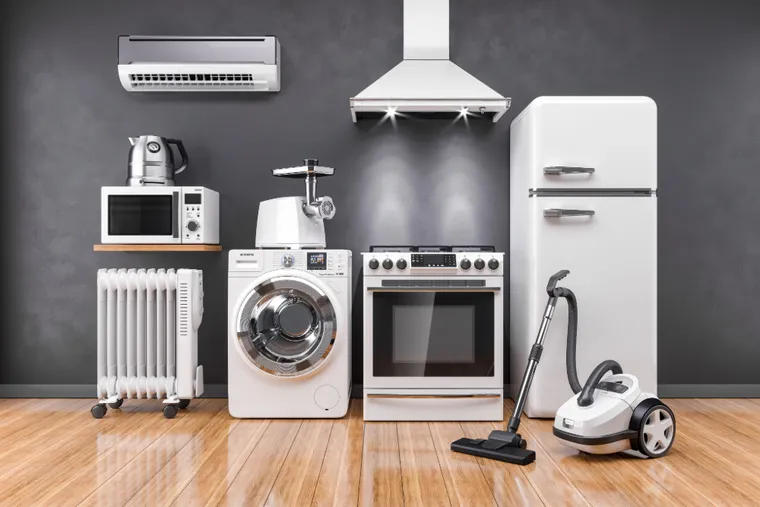Energy-efficient appliances are transforming the way we use energy in residential homes. They not only contribute to lower energy bills, but they also reduce environmental impact and improve overall convenience.
Understanding the benefits of energy-efficient appliances, how to choose them, and the best practices for their maintenance can help real estate professionals and homeowners save money and reduce their carbon footprint.
For real estate professionals, learning about energy-efficient appliances is becoming increasingly important in real estate continuing education courses. These appliances are transforming residential homes and creating opportunities for real estate professionals to deliver added value to their clients.
Why Choose Energy-Efficient Appliances?
Why stick with outdated, energy-hogging appliances when you can switch to models that save money and work better? Energy-efficient appliances make life easier while helping you go green.
Cost Savings
Energy-efficient appliances reduce energy consumption, which leads to lower utility bills. For example, an ENERGY STAR-certified refrigerator can save homeowners over $200 in energy costs during its lifespan.
Environmental Benefits
Energy-efficient appliances reduce greenhouse gas emissions by using less electricity. This helps combat climate change and preserves natural resources.
Improved Performance
Modern energy-efficient appliances are designed with advanced technology, offering better performance. Features like soil sensors in dishwashers to moisture sensors in dryers save energy.
Energy-Efficient Appliances
When it comes to energy efficiency, even small changes can add up. Upgrading everyday appliances like your dryer or stove is a simple way to boost your home’s efficiency and lower your bills.
Kitchen Appliances
The kitchen is home to some of the most energy-intensive appliances. Here are some tips for choosing and using energy-efficient kitchen appliances:
- Refrigerators
- ENERGY STAR-certified refrigerators are about 9% more energy-efficient than standard models. Opt for models with top-mounted freezers, which consume less energy.
- Regularly clean refrigerator coils and make sure door seals are airtight.
- Avoid keeping an old second refrigerator running, as it significantly increases energy usage.
- Dishwashers
- ENERGY STAR dishwashers use 12% less energy and 30% less water than standard models.
- Use eco-mode settings and air-dry dishes instead of heat-drying for additional savings.
- Cooking Appliances
- Induction stoves are the most energy-efficient option, as they heat food directly and reduce heat loss.
- Use small appliances like toaster ovens or microwaves for smaller meals, which consume less energy than full-sized ovens.
Laundry Appliances
Efficient laundry practices and ENERGY STAR-certified washers and dryers can greatly reduce energy consumption:
- Washing Machines
- ENERGY STAR washers use 25% less energy and 35% less water than conventional models.
- Wash clothes in cold water and always run full loads to minimize energy and water use.
- Dryers
- ENERGY STAR dryers, especially heat pump models, save 20-60% more energy than standard dryers.
- Use moisture sensors to prevent over-drying and save energy.
Lighting
Switching to energy-efficient lighting can have an immediate impact:
- Replace incandescent bulbs with LEDs, which use 75% less energy and last up to 25 times longer.
- Use daylighting and motion sensors to reduce unnecessary lighting use.
For real estate agents, the increased performance of appliances can influence home marketability, a topic covered in detailed real estate courses designed to keep agents informed on the latest technological advancements.
Maximizing Appliance Efficiency
Modern appliances are smarter and more efficient than ever, but are you getting the most out of them? Maximizing appliance efficiency is about leveraging the right habits and techniques to make the most of your investments.
Understand Energy Usage
- Use electricity usage monitors or whole-house energy monitoring systems to identify energy-intensive appliances.
- Look for the ENERGY GUIDE label to compare the energy consumption of different models.
Maintenance
- Clean appliance components like refrigerator coils, lint screens, and filters regularly.
- Make sure appliances are properly placed, such as keeping refrigerators away from heat sources.
Energy-Saving Practices
- Use dishwashers and washing machines only when full.
- Match the size of pots and pans to stove burners to avoid heat loss.
- Unplug devices with phantom loads or use smart power strips to cut off standby energy use.
The Future of Energy-Efficient Appliances
The future of energy-efficient appliances is all about innovation, making our lives easier while being kind to the planet.
Picture this: smart appliances that sync up with your home automation system, letting you control and optimize energy use right from your phone. And that's just the start.
We’re also looking at appliances that could run on renewable energy, which means even less energy waste and a smaller environmental footprint. It’s an exciting time for energy-savvy homeowners!

